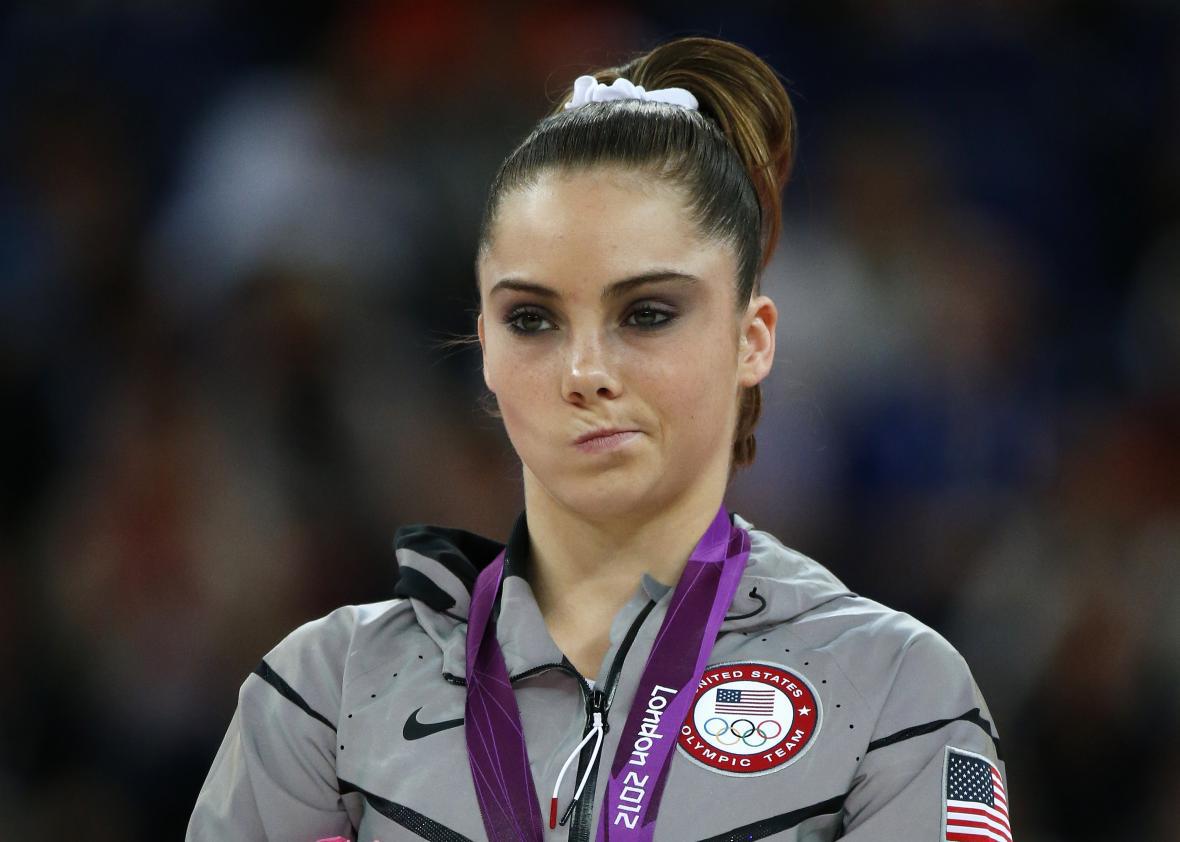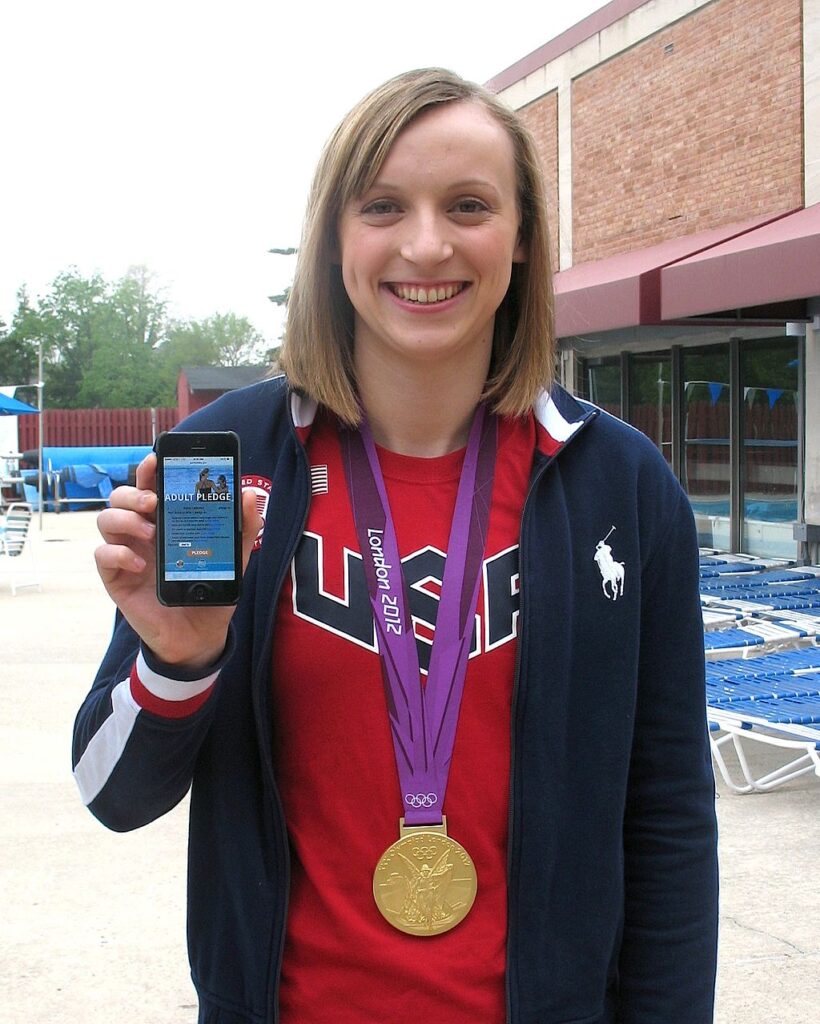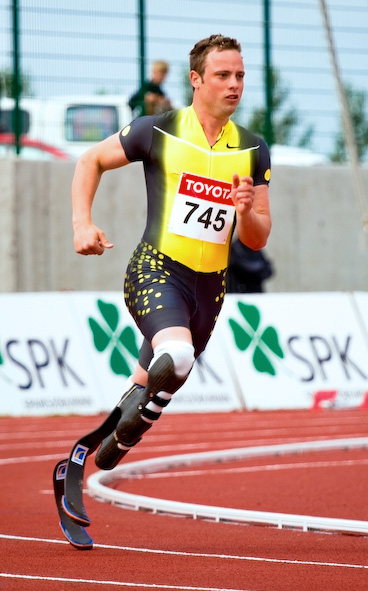Four rounds for a third time.
Nine cities had submitted bids to host the Olympics in 2012 but a technical evaluation reduced that number to five – London, Madrid, Moscow, New York, and Paris – before the voting actually began. Early on in the process people believed Paris had the inside track among the finalists. But then Sebastian Coe was appointed chair of the London Organizing Committee of the Olympic and Paralympic Games (LOCOG). When he was a competitive runner, Coe was known for his late kick and he provided something similar for LOCOG as first Moscow then New York then Madrid fell by the wayside. In the final round, London won the bid by a vote of 54-50.
London’s bid centered around using a mix of existing facilities including Wembley Stadium for football and the All-England Lawn Tennis and Croquet Club (aka Wimbledon) for tennis, and the construction of new facilities in primarily in the 200 hectare (490 acre) Olympic Park.

Panoramic aerial view of the Olympic Park looking south. Picture taken on 16th April 2012 by Anthony Charlton.
[From Wikimedia Commons Uploaded-by-BaldBoris-CC-BY-2.0.]
Although the Games received high praise for their organization, they fell considerably short of their ambitious goal of generating 20 percent of the power from renewable sources. In fact, renewable powered a mere nine percent of the Games.
Once the games started, more than 10,500 athletes from 204 National Olympic Committees vied for medals in 302 events comprised of 26 sports and 39 different disciplines.
For the first time, the Olympics allowed women to compete wearing a hijab.
Brunei became the last participating nation in the Olympics to have at least one woman competitor when Maziah Mahusin, who was also the country’s flag bearer in the Opening Ceremony, took to the track for a heat in the 400 meter race.
A look at the Games.
Although the group stage for women’s football began on 25 July, the opening ceremony took place on 27 July. Directed by Danny Boyle, it should have come as no surprise that it had many cinematic moments including a tribute to the 1981 film Chariots of Fire and a filmed appearance by Daniel Craig in his role as James Bond that included a cameo (and helicopter jump!) from Queen Elizabeth II. And, it’s hard to forget the last seven minutes or so:.
Queen Elizabeth II opened the Games for the second time. (She had done so previously in Montreal in 1976.)
Wu Minxia from China became the first woman to win a gold medal in diving in three consecutive Olympic Games when she and teammate He Zi won the women’s synchronized 3m springboard. She also won the individual 3m springboard gold medal. This was her sixth medal and it tied the record for most medals won in diving.
It wasn’t a splashy debut in the pool for American swimmer Michael Phelps when he finished fourth in the 400 meter individual medley. In fact, it was the first time since his Olympic debut at age 15 in 2000 that Phelps failed to win a medal in a race. The remainder of the competition was better for Phelps as he added six medals – four gold and two silver – to his collection and raised his total medal count to 22 – far surpassing the total medal count for any other competitor man or woman. (Phelps would return to the pool in Rio and add five gold and one silver medal to his Olympic career. For some perspective on Phelps’ achievement, take a look at this list of Olympic medals by country. Whether you sort by total medals or gold medals, in 2023, it’s easier to count the countries with more medals than Phelps than it is to count the ones with fewer.)
In the women’s competition, the great Missy Franklin won four gold medals to accompany the bronze she won swimming in the 4×100 relay. These Olympics also featured the debut of Katie Ledecky, then just 15 years old, who stunned the world when she swam the second fastest time in history while winning the gold medal in the 800 meter freestyle.
[Photo from Wikimedia Commons – PoolSafely BY CC 2.0.]
The 2012 Games had a women’s boxing competition for the first time in history. The finals of all three weight classes were held on the same day and the first gold medal went to the home country’s Nicola Adams a flyweight who won a 10-2 decision over China’s Ren Cancan. Ireland’s Katie Taylor won the lightweight division and American Claressa Shields claimed the middleweight crown.
Did Gabby Douglas open a door for Simone Biles? Biles was still a junior gymnast when Douglas led the American team known as the “Fierce Five” to its first gold medal since 1996. She followed that by winning the all-around individual gold medal becoming not only the first African-American woman but the first woman of color from any nation to claim that title. Did her achievement add to Biles’ motivation? Perhaps.
And what of Andy Murray? On 8 July 2012, the hopes of a nation were dashed when Murray, seeking to become the first men’s champion from the United Kingdom in the open era, lost the Wimbledon final in four sets to Roger Federer. Just a few days shy of a month later, the two faced off again on the same court. This time, Murray took the victory and Olympic gold in straight sets.
On the track.
Continuing the home country’s success, on 4 August Mo Farah became the first person from Great Britain to win the 10,000m race. Seven days later he won the 5000m and became the seventh man to complete the long distance double.
Although he wasn’t the first disabled person to compete in the Olympics, Oscar Pistorius of South Africa qualified for the London Olympics and raced in the both 400m and the 4X400m relay. Called the “blade runner” because of the design of his prosthetic legs, Pistorius failed to reach the finals of either event. (Less than a year later, Pistorius shot and killed his girlfriend Reeva Steenkamp. He was eventually found guilty of murder and sentenced to 15 years in prison.)
[Photo from Wikimedia Commons By-Elvar-Palsson-derivative-work-CC-BY-2.0.]
Kirani James who at age 18 was the youngest 400m world champion became the Olympic champion in the same event. His winning time of 43.94 seconds made him the first non-U S athlete to to record a time under 44 seconds. More importantly he earned Grenada its first Olympic gold medal.
Usain Bolt became the first person to successfully defend his titles in both the 100 and 200 meter races. Bolt’s run in the 100 meter final also gave rise to one of the most bizarre and great poetic justice moments of Olympic history when, minutes before the final, a fellow named Ashley Gill Webb tossed a bottle onto the track in a failed effort to hit Bolt that landed several lanes short of the target. Sadly for Mister Webb, he was sitting next to Edith Bosch a Dutchwoman who won a bronze medal in judo. She bopped him on the head and held him at bay until he could be arrested.
A word for the old folks.
This is a brief tribute to two veterans who broke impressive barriers at the London Games.
At age 33 American Kim Rhode equaled the world record of 99 out of 100 clays in skeet shooting to win her third career Olympic gold medal. She’d previously won the double trap competitions in 1996 and 2004 making her the only woman to win three Olympic individual gold medals in shooting. Rhode also won a bronze medal in double trap in 2000 and a silver in skeet in 2008. She stands as the only American competitor to win medals for an individual event in five consecutive Olympics.
Although he failed to win a medal, Ian Millar of Canada who at 65 was nearly twice the age of Kim Rhode competed in both the individual and team jumping in equestrian in London. It was Millar’s tenth Olympics (he has one silver medal that he won in team jumping in 2008) and he broke the previous record of nine held by Austrian sailor Hubert Raudaschl.
And finally…
And, while many may remember the shocking dive by Stephan Feck or the drama of Chinese hurdler Liu Xiang hopping along the track after spraining his always delicate Achilles tendon, there can be little doubt that the most lasting image from these games came out of the North Greenwich or O2 Arena courtesy of American artistic gymnast McKayla Maroney.

[Photo from Slate.com.]

